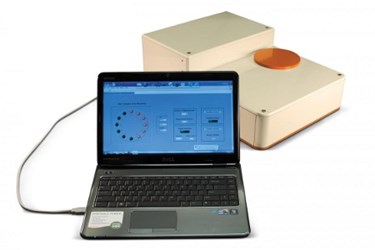$1 Prostate Cancer Test More Accurate Than PSA

Scientists have developed a new test to screen for prostate cancer that outperforms the prostate-specific antigen (PSA) test and costs less than $1 produce. The new test, which uses gold nanoparticles, is more specific and sensitive than current clinical standards and overcomes the limitations of the PSA.
The PSA test, which has been in clinical use for decades, has recently become the subject of criticism from experts who claim that the test leads to overtreatment and needless risk and side effects.
Not all cases of prostate cancer require treatment; however, PSA testing cannot distinguish between different stages of severity. According to the National Cancer Institute, overtreatment of prostate cancer can cause complications such as incontinence, painful and unnecessary surgical procedures, and erectile dysfunction.
An article published last month by Harvard Medical School pointed out the limitations of the PSA, saying that the test provides too many false positives and that clinicians needed an early detection test that indicated the severity and aggressiveness of the cancer, so that a more appropriate treatment could be assessed.
The new test, designed by a team from University of Central Florida (UCF), mixes a few drops of blood serum with a mixture of gold nanoparticles and water. Certain prostate cancer biomarkers attach themselves to the gold, causing the nanoparticles to grow in size and clump together. According to a UCF Today news story, researchers were able to accurately diagnose prostate cancer and the degree of its aggressiveness by analyzing the light scattered from the gold.
A study published by Applied Materials & Interfaces reported that the nanoparticle-enabled dynamic light scattering assay (NanoDLSay) outperformed the PSA test by a wide margin.
“Two pilot studies conducted on blood serum samples collected at Florida Hospital and obtained from Prostate Center Biorepository Network (PCBN) revealed that the test has a 90-95 percent specificity and 50 percent sensitivity in detecting early stage prostate cancer, representing a significant improvement over the current PSA test,” said study authors.
Currently, the sensitivity of the PSA test is 20 percent, and though the NanoDLSay’s 50 percent is not ideal, it’s a major improvement, and the researchers are working to improve that number.
“What’s different and unique about our technique is it’s a very simple process, and the material required for the test is less than $1,” Qun Huo, a UCF professor of nanotechnology who led the study, told UCF Today. “And because it’s low-cost, we’re hoping most people can have this test in their doctor’s office. If we can catch this cancer in its early stages, the impact is going to be big.”
Though further clinical testing is required, Huo said that she hopes to market the test within the next 2 to 3 years.
The CDC estimates over 200,000 men are diagnosed with prostate cancer each year, and 28,000 cases are fatal, making it one of the leading causes of cancer death among men.
Image credit: Nano Discovery Inc.
